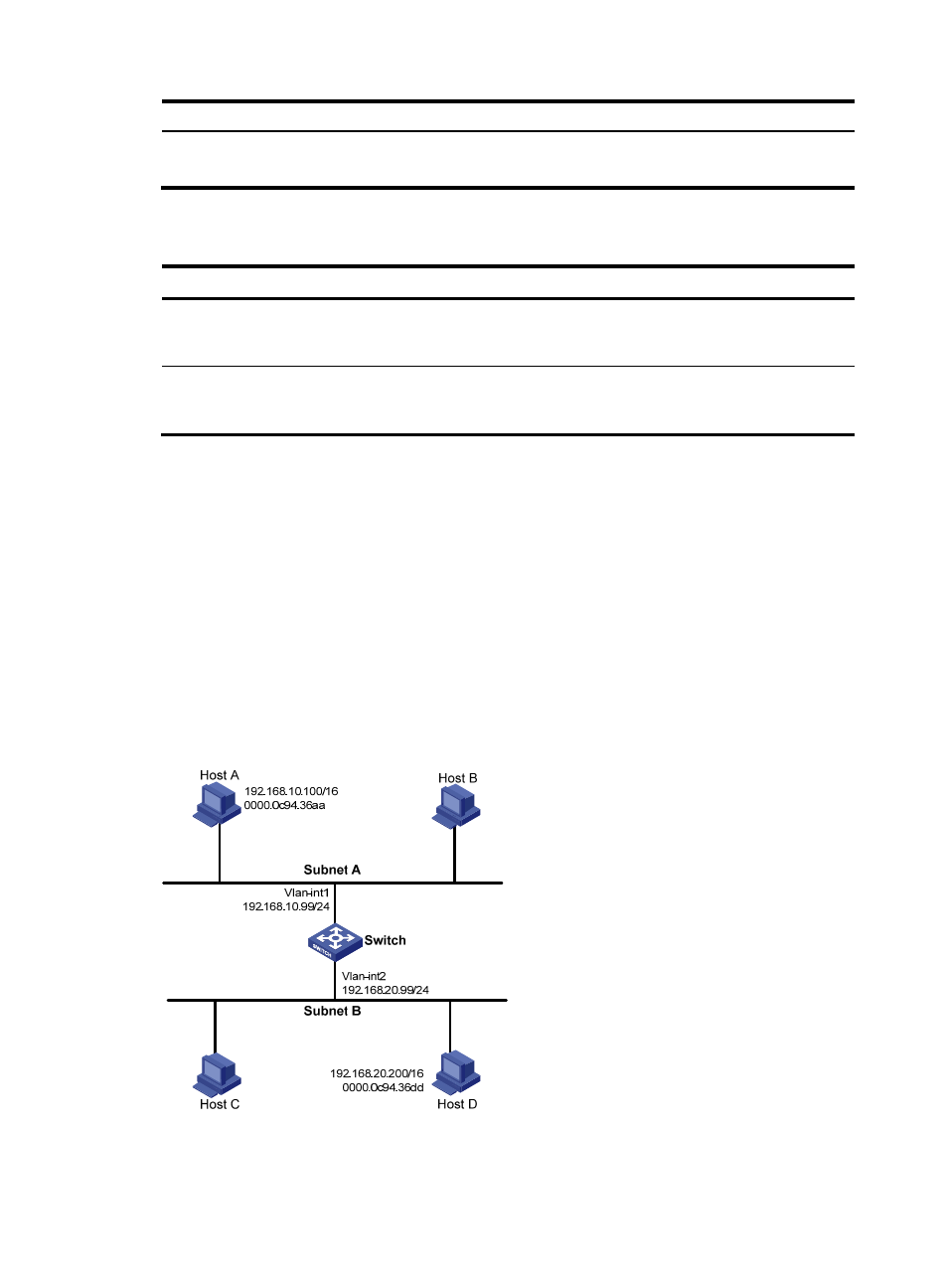Displaying and maintaining proxy arp, Proxy arp configuration examples, Proxy arp configuration example – H3C Technologies H3C S10500 Series Switches User Manual
Page 28: Network requirements

17
To do…
Use the command…
Remarks
Enable local proxy ARP
local-proxy-arp enable [ ip-range
startIP to endIP ]
Required
Disabled by default.
Displaying and maintaining proxy ARP
To do…
Use the command…
Remarks
Display whether proxy ARP is
enabled
display proxy-arp [ interface interface-type
interface-number ] [ | { begin | exclude |
include } regular-expression ]
Available in any view
Display whether local proxy ARP is
enabled
display local-proxy-arp [ interface
interface-type interface-number ] [ | { begin
| exclude | include } regular-expression ]
Available in any view
Proxy ARP configuration examples
Proxy ARP configuration example
Network requirements
As shown in
, Host A and Host D have the same IP prefix and mask (IP addresses of Host A and
Host D are 192.168.10.100/16 and 192.168.20.200/16 respectively), but they are located on different
subnets separated by the switch (Host A belongs to VLAN 1 while Host D belongs to VLAN 2). As a result,
Host D cannot receive or respond to any ARP request from Host A.
You must configure proxy ARP on the switch to enable communication between the two hosts.
Figure 9 Network diagram for proxy ARP
